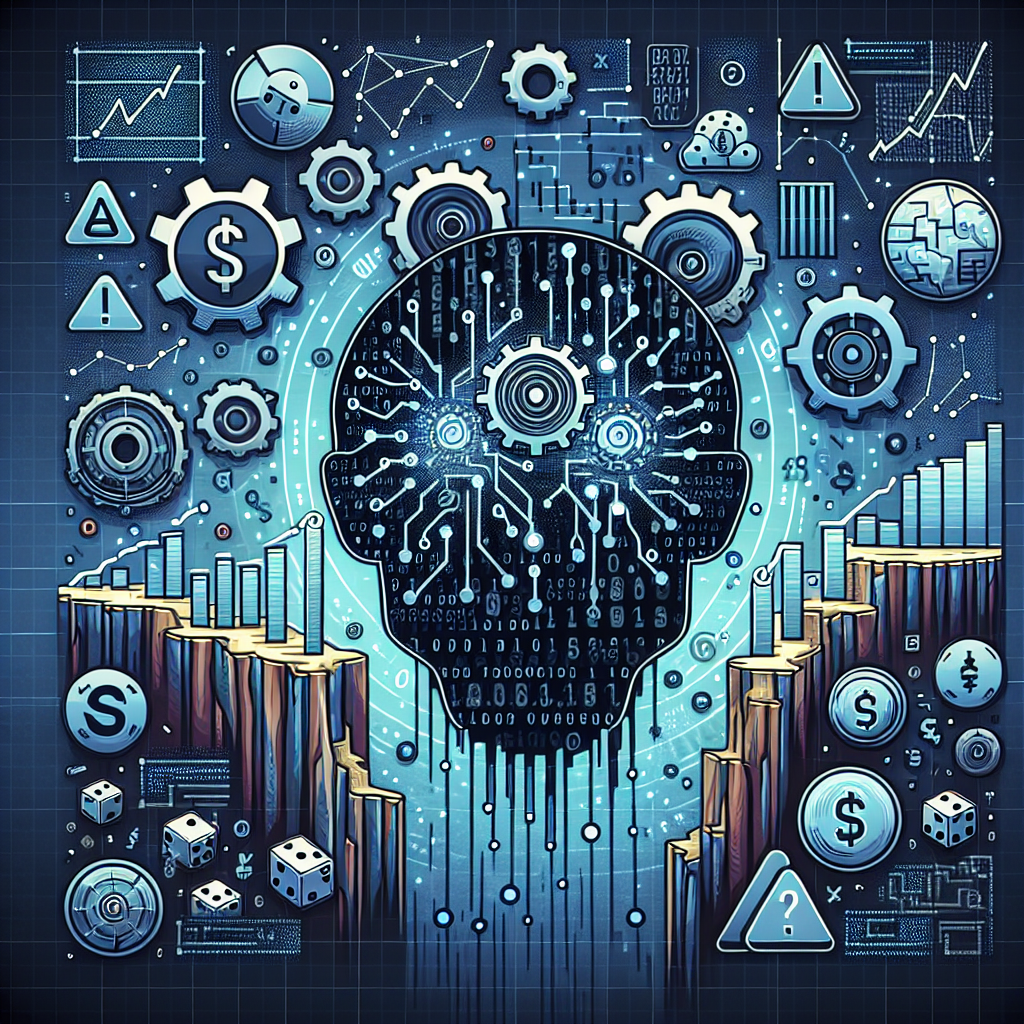Artificial Intelligence (AI) has been making significant strides in various industries, including the financial markets. AI algorithms are being used to analyze vast amounts of data, make trading decisions, and predict market trends with greater accuracy than ever before. While this has the potential to increase efficiency and profitability in the financial sector, there are also risks associated with the use of AI in financial markets. In this article, we will explore the potential consequences of these risks and how they could impact the stability and integrity of financial markets.
One of the main risks associated with AI in financial markets is the potential for algorithmic bias. AI algorithms are only as good as the data they are trained on, and if that data is biased, it can lead to biased outcomes. For example, if an AI algorithm is trained on historical data that contains biases against certain groups of people, it could perpetuate those biases in its decision-making process. This could result in unfair treatment of certain individuals or groups in the financial markets, leading to ethical and legal issues.
Another risk is the potential for AI algorithms to amplify market volatility. AI algorithms can make decisions at speeds much faster than human traders, which can lead to rapid and unpredictable changes in market prices. This could create a feedback loop where algorithms react to each other’s actions, leading to extreme fluctuations in market prices. This could increase the risk of market crashes and destabilize financial markets.
Additionally, there is a risk of overreliance on AI in financial markets. While AI algorithms can analyze vast amounts of data and make decisions with greater accuracy than humans, they are not infallible. There is always the possibility of errors or malfunctions in AI algorithms, which could lead to significant financial losses. If financial institutions become too dependent on AI for their trading decisions, they could be vulnerable to catastrophic failures in the system.
Furthermore, there is a risk of cybersecurity threats in AI-powered financial systems. As AI algorithms become more sophisticated and interconnected, they become more vulnerable to cyber attacks. Hackers could exploit vulnerabilities in AI algorithms to manipulate market prices, steal sensitive financial information, or disrupt financial systems. This could have serious consequences for the stability and security of financial markets.
In conclusion, while AI has the potential to revolutionize the financial markets, there are also risks associated with its use. Algorithmic bias, market volatility, overreliance on AI, and cybersecurity threats are all potential consequences of AI in financial markets that could impact the stability and integrity of the financial system. It is important for financial institutions to be aware of these risks and take appropriate measures to mitigate them in order to ensure the long-term health of financial markets.
FAQs
Q: How can financial institutions mitigate the risks of AI in financial markets?
A: Financial institutions can mitigate the risks of AI by ensuring that their AI algorithms are transparent, fair, and free from bias. They should also have safeguards in place to prevent algorithmic errors and malfunctions, as well as robust cybersecurity measures to protect against cyber attacks.
Q: What role do regulators play in managing the risks of AI in financial markets?
A: Regulators play a crucial role in managing the risks of AI in financial markets by setting guidelines and standards for the use of AI algorithms in trading and investing. They also monitor financial institutions to ensure compliance with these regulations and investigate any instances of misconduct or market manipulation.
Q: Are there any benefits to using AI in financial markets?
A: Yes, there are many benefits to using AI in financial markets, including increased efficiency, accuracy, and profitability. AI algorithms can analyze vast amounts of data and make decisions at speeds much faster than humans, leading to better trading decisions and improved market predictions.
Q: How can investors protect themselves from the risks of AI in financial markets?
A: Investors can protect themselves from the risks of AI in financial markets by diversifying their portfolios, staying informed about market trends and developments, and using caution when relying on AI-powered trading platforms. It is also important for investors to be aware of the potential risks and to seek advice from financial professionals when making investment decisions.

